9. Sean Penn in Mystic River (2004)
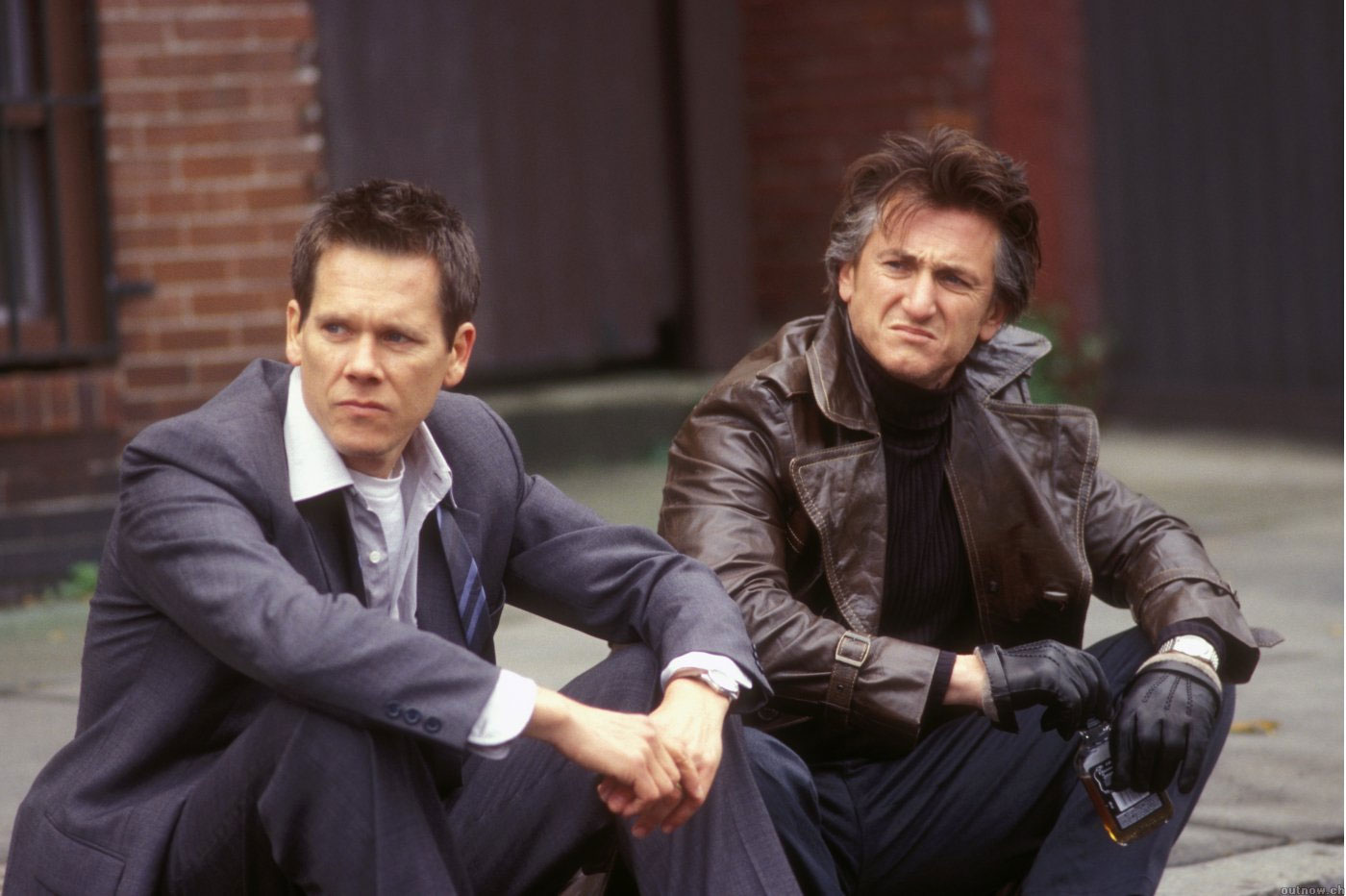
In a film that looks like but is not a crime movie, Clint Eastwood masterly directs five human characters and their response to loss and trauma. Based on a novel, the plot tells the story of three childhood friends who are all mixed up in a murder case: Jimmy is the father of the 19-year-old brutally murdered Katie; Sean is the homicide detective who is in charge of the investigation; and Dave, still friends with Jimmy, is nevertheless the main suspect.
One of the few films Eastwood directed in but didn’t act, this novel-based movie is an opportunity for great performances in leading and supporting roles. It gained Oscars for both Best Actor and Best Supporting Actor. The Best Actor Oscar went to Sean Penn for the deeply devastating role of a father who loses his daughter and has to go on with his new family routine, and at the same time he cannot stop thinking about taking revenge.
Having given to cinema the all-time classic scene of him screaming “Is that my daughter?” – the moment where he is heading to the place where the police found the dead body of his daughter – Penn wins his first Oscar of the decade, showing how Jimmy passes from despair and mourning to a blind search of revenge. Though Jimmy is a person with rather violent and irrational reactions, which won’t bring him the relief he yearns for, we tend to sympathize him and dive with him into his mystic river of sorrow and vengeance.
8. Forest Whitaker in The Last King of Scotland (2007)
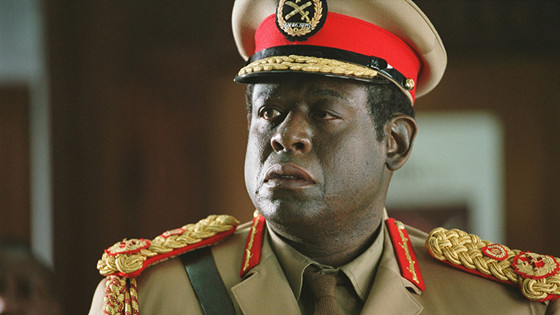
An actor known for many supporting roles takes the Oscar for the leading role in a film he is not the protagonist. A bit complicated!
Forest Whitaker plays the role of Idi Amin, the paranoiac, narcissistic dictator of Uganda, seen through the eyes of Nicholas Carrigan, a young Scottish doctor who flew to Rwanda seeking adventure and ended up as the personal physician of the coup instigator Amin. What seems to be a truly born friendship ends up as a fatally dangerous relationship between the foolish, idealistic Scot and the maddened leader of the State.
Whitaker endows Amin and his ever-changing temper, from seductive friendliness to childish paranoia and terror, and he manages to be scary in both situations. He captives the cultural differences and portrays the bloodthirsty dictator in a most realistic and believable way, highlighting his childish and superstitious aspects – that form part of Africa’s collective subconscious – to help understand how power works in a totally different geo-cultural area than the the one we are used to living in or seeing on the big screen.
And he does that by creating a real human being, a cinematic persona, neither a caricature that would serve as a scapegoat nor a schematic lunatic that would be a scarecrow to young European teenagers.
With his performance, Whitaker bridges European beliefs and a down-to-the-field reality in Africa, as through his acting we can clearly see what lies beneath these kinds of leaders in sub-Saharan Africa.
7. Casey Affleck in Manchester by the Sea (2017)
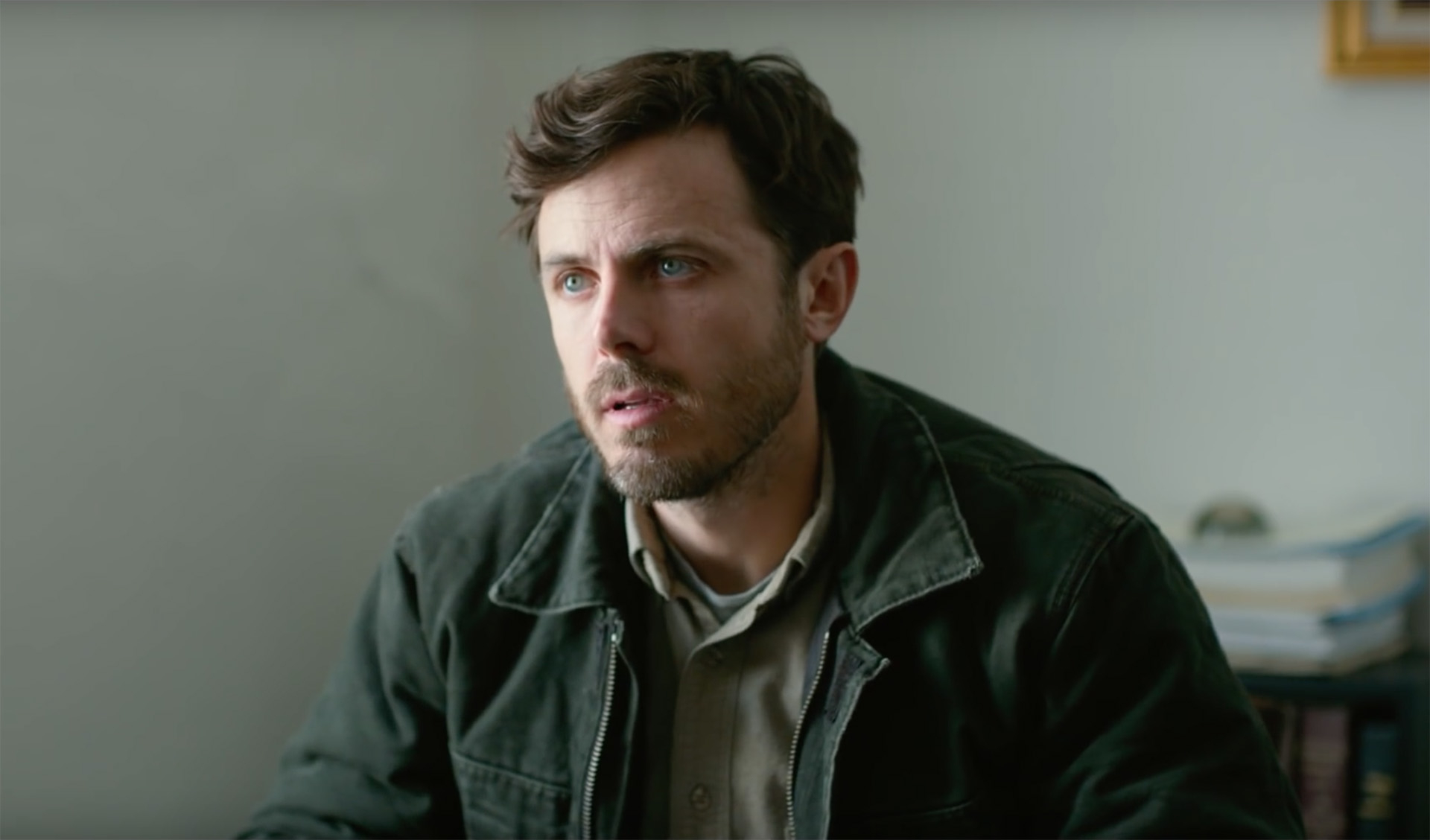
Was it he the actor best suited the script, or the other way around? It really doesn’t matter. Casey Affleck did a really strong and impressive, deep performance that was really the best of his career, surely one of best of that year. It was a boldly fair Oscar win.
Affleck plays Lee Chandler, a man in deep grief because of an – unknown to us until more than half the movie has passed – event that broke his heart, damaged his life forever, and nobody wants to talk about it, even though people point at him in the streets of his once hometown.
He behaves in a very estranged way, being both remote and irritable; he prefers staying alone and avoids needless conversation with people. He is absolutely not the ideal guardian for his teenage nephew, who has just lost his father. Nor is it ideal for him coming back to a place where he has terrible memories that haunt him.
Affleck approaches his role from the inside and he perfectly expresses grief through non-language forms (stance of the body, glances, silence). In the most discussed and appraised scene of the dialogue Lee has with his ex-wife, he manages to drive it to heart-wrecking levels without a tear, a shout, or an act of despair.
Just by what he is not expressing, just by how he is not reacting. In the second half of the film, we identify with this tragic figure and suffer the unbearable loss through Affleck’s performance.
6. Colin Firth in The King’s Speech (2011)
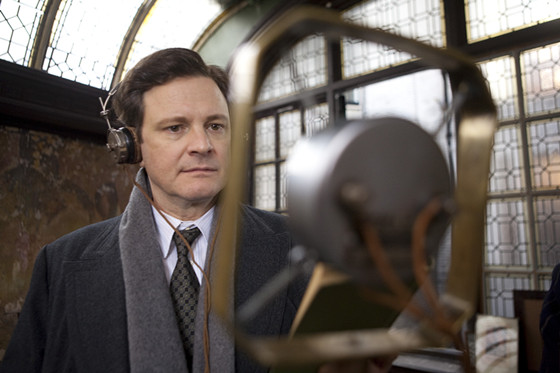
Colin Firth holds the leading role in a period drama about the British royal family; in particular, one of his members, King George VI. We go back to 1934 when the King, known as Albert, has a speaking problem and cannot address to a public without stammering. His devoted wife manages his visit to a famous speech therapist who uses innovative techniques.
Visiting incognito, Albert (Bertie, as he is called) is at first shocked by the therapist’s forwardness, but gradually they form a strong bond between them which helps Albert solve his speaking problem, accept being the King after his brother’s abdication, and lead with his inspired speeches Britain’s war against Nazi Germany.
Interpreting a member of the British royal family is, in itself, a difficult task. It is also a fascinating one, as the Academy seems to reward actors who play celebrities, especially crowned ones. Firth gives a charismatic performance of a man trapped in his own inefficiency and his efforts to gain the self-esteem and power to overcome it.
It would be unfair if, in this text that is written to describe – and appraise – Firth’s performance, I didn’t mention Geoffrey Rush, speech therapist Lionel Logue, the proletarian who supported and assisted the King. This movie was something like a tango – it needed two.
And they matched so brilliantly together. The one completed the other in such a way that one cannot think about the movie without thinking about both of them. If there was an Oscar for the Best Acting Couple, they would definitely deserve it!
5. Matthew McConaughey in Dallas Buyers Club (2014)
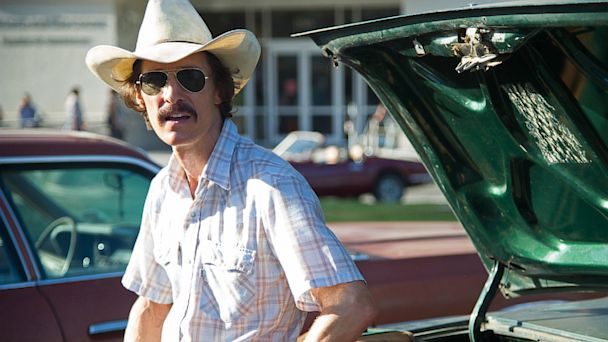
He may have lost a lot of kilos to suit the role of AIDS-infected Ron Woodroof, but far from that fact, Matthew McConaughey did an excellent job in the lead role of a movie that tells a true and truly thrilling story about a heterosexual AIDS patient who rebels against the fate doctors and pharmaceutical firms have prescribed for him, and takes his life and his medicine into his own hands, helping other AIDS patients to relieve their condition.
McConaughey gives a tremendously convincing performance of the country guy, homophobic Ron in all the stages of his short life before and after he is diagnosed with HIV. He portrays a fierce, lust-seeking, small-time crook from the South, but he also portrays the sick man and his agonies.
He is at the same time a trickster, an alcoholic, a desperate patient, a fighter, and most of all, a man who faces a major, fatal challenge and his life and choices lead him to redefine lifelong stances. From a selfish rogue who cares for nothing but having fun, to a person who can build true relationships and help other people.
Together with Jared Leto, they form one of the most superb duos in American cinema. It was the fifth time in Oscar history that a movie gets both leading and supporting Best Actor awards.
4. Sean Penn in Milk (2009)
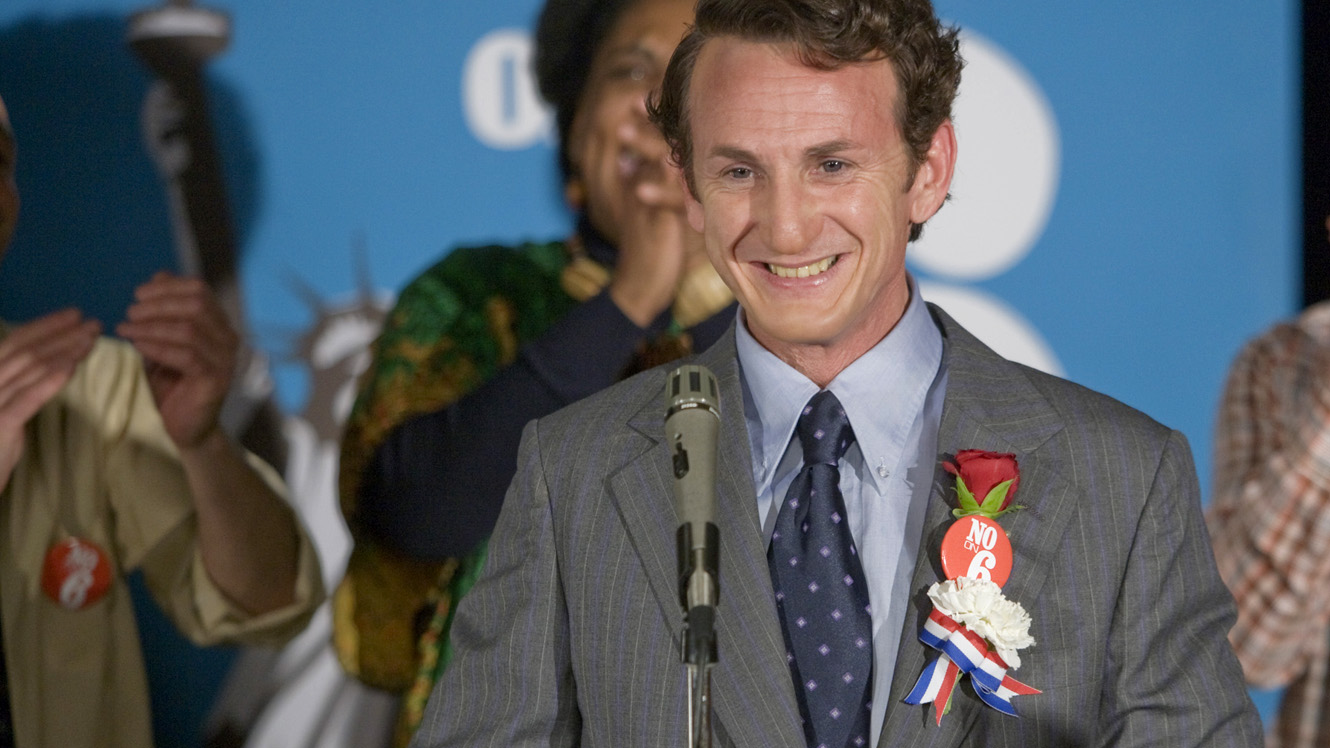
Sean Penn is an actor who has played a variety of roles. From a macho young delinquent to an aging rock star and a mentally retarded father, he has proven that he can dramatically deal with every challenge. Much more when it is an inspiring role like the one of Harvey Milk, the first openly gay elected official in the United States and an activist for gay rights, who paid his struggle with his life.
Based on the thrilling story of one of the founders of the LGBT movement, Penn manages to portray the inner change in Milk’s character that transformed him from a shy employee of an insurance company to a fierce fighter and a devoted lover, to a man who fears no more to express his feelings and kiss another man in the middle of the street.
As an actor, he has the unique capacity to ‘inhabit’ a character, with no need for makeup or physical distortion to interpret somebody and even to change his physicality, to become a totally different person every time and in this particular movie, to become a different person being the same person in the same movie.
Penn’s Harvey Milk is a completely recognizable and identifiable character. He pays attention to the minor details, as he does in every role he plays, and highlights the good – the willing and generous nature of Milk. His performance surprised his colleagues during the film’s release and magnetized the audience and the critics. It’s a performance to remember!
3. Daniel Day Lewis in Lincoln (2013)
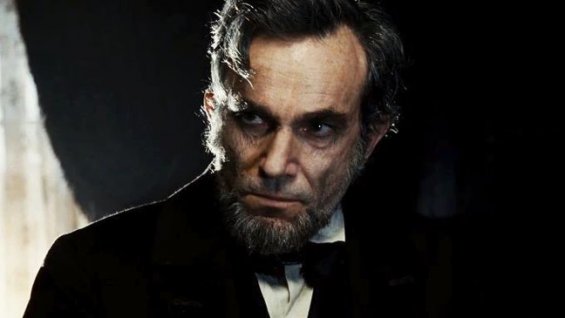
Considered the top method actor ever, Daniel Day-Lewis acquired his third Oscar for Best Actor (the first actor ever to achieve it) by playing Abraham Lincoln in a great iconic biopic that focuses on the voting on the 13th Amendment that abolished slavery in 1865.
Surrounded by a distinguished cast, directed by a Hollywood ‘holy monster’ and written by a Pulitzer Prize winner, Day-Lewis had everything he needed to be the best Lincoln in American movie history – and there were quite a few in past decades. He let himself be “drawn into Lincoln’s orbit”; he became Lincoln to the point that everyone in the crew called him “president.”
From his stance – slightly bowing, his hands hanging – to his voice, to the feverish looks, he portrayed an ideologist that fought against all odds to what he deeply believed was his duty as Christian and as the President of United States. Without losing respect for this emblematic man in American history, he de-mythologies him, humanizes his actions, gives depth and further meaning to his speeches, empathizes, and ends by embodying Lincoln.
2. Philip Seymour Hoffman in Capote (2006)
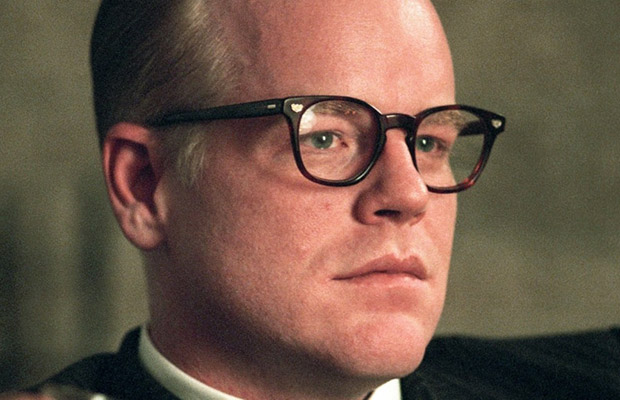
The film is about an iconic American writer and how he wrote his most distinguished book, “In Cold Blood.” Philip Seymour Hoffman plays Truman Capote, a provocative journalist and novelist who travels back to the Midwest, to a small provincial town in Kansas, to do research about the way the local community is dealing with the atrocious slaughter of a family in their home.
During his sojourn in the town, the murderers are arrested and he manages to get in close contact with one of them, Perry Smith. Capote tries to extract information from Perry about the night of the murder by getting emotionally close to him. He promises he will help him and sentimentally blackmails him, while at the same time he is trapped in an emotional relation with the convicted criminal.
Hoffman had already played roles of social misfits and that carved him out a brilliant career. When he finally decided to accept the offer and portray the discrepant, troubled character of Capote, a prodigious literature genius who was marked by a bruised childhood and identified himself with Perry, he started finding similarities between him and the writer, losing weight, reading for five months every little thing he could find about Truman Capote.
He totally changed the tone of his voice, to tune with Capote’s peculiar timbre, and worked in the freezing cold of Winnipeg, Canada for 36 days with a harshness that surprised his collaborators. “It was the kind of role that technically I had to stay with because if I let it go it was pretty hard to try to get it back,” he confessed to John Hiscock. This persistence led him to an Oscar that honored a really memorable performance!
1. Daniel-Day Lewis in There Will Be Blood (2008)
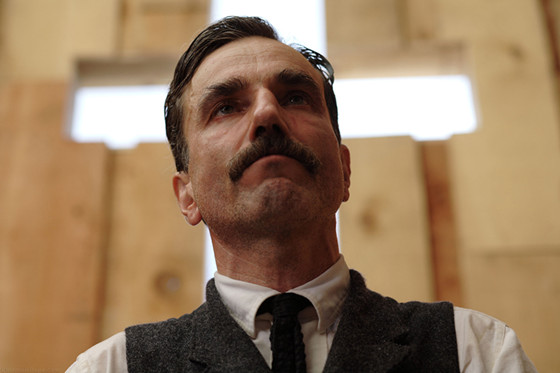
Of all the excellent performances Daniel Day-Lewis has offered to cinema audiences throughout the years, Daniel Plainview, one of the most challenging villains in cinema, must be the best.
In a movie that could be titled “How the West Was Won,” Plainview is a carpetbagger who wants nothing but to make a big fortune, and he is willing to do anything, felony and murder included, to get to his goal.
Adopting a deaf orphan, which would seem to be an act of utter charity, is nothing but a calculated move toward wealth. He has no feelings; better told, the only feelings he’s got are anger and hate. He is juxtaposed to Eli, a preacher who incarnates the plunge of theistic morality in front of the oncoming force of capital.
The fight between Plainview and Eli, which transcends the movie, is literally the conflict between medieval religiousness and the slamming power of newborn industry – through the exploitation of the new combustible, petroleum – and the ethics of the society that the drive for growth creates.
One may ask: this is a list about actors’ performances, not about analyzing movies, so what does the above have to do with Day-Lewis’s performance? It has more than a lot to do with it. Day-Lewis performs a role that is more than a character, it is an idea: Plainview portrays the forces that built the American economy by exploiting nature and the inhabitants of the western wild lands, the territory where personal ambition was the governing rule.
Day-Lewis gives an astonishing performance, alternating calmness, stubbornness and fierce anger outbursts, depicting the wild beast inside the unscrupulous man in a role that has been already considered a classic. Unquestionably number one in this list.